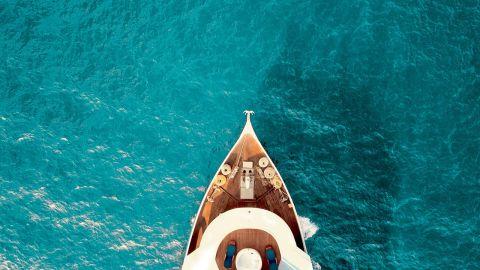New Zealand Olympic Sailors Pledge Clean Up
With a focus on ocean conservation, Kiwi Olympic sailors Peter Burling and Blair Tuke have established Live Ocean, a New Zealand registered charity with one mission, to be a world-leading champion in ocean health. Not afraid of pushing themselves to the limit, these boys may have taken on their biggest challenge yet.
By concentrating their efforts on positive change for the ocean, the charity sets out to support and invest in promising marine science, innovation, technology and marine conservation projects. Inspiring and educating New Zealanders to change behaviour.
Named Live Ocean because that’s what we all want, Burling said “New Zealand should be a world leader in ocean health. We have over four million square kilometres of ocean so what we do here is globally significant.”
By talking to scientists and ocean leaders over the past 12 months, Tuke and Burling appreciate that change needs to happen quicker. Repeatedly told that the ocean is changing and with its many complexities, the need to invest in promising marine research, innovation, people and projects has never been more vital.
The stats are not good*: staggeringly, only 0.5% of the NZ marine territory is fully protected, almost 33% of marine mammals are under threat and nearly 90% of New Zealand’s seabirds (the seabird capital of the world) are threatened or at risk of extinction.
One species in particular, New Zealand’s Antipodean albatross, is destined for extinction with the breeding population falling from 17,000 in 2004, to 6,000 in 2019. That’s two thirds of the population lost in 15 years, an average of two lost every day.
“The Antipodean albatross is an indicator of what’s happening in the ocean” explains Tuke “we need to step up as a team because there are things we can do today to save them from extinction.”
These Kiwi birds nest and breed in the Antipodes Islands, flying over the pacific, following ships and commercial fishing vessels, but accidentally getting caught up in their longlines. The belief is that climate change is driving them further north to feed though, where there’s an even greater concentration of fishing fleets.
Rather than wait and watch these numbers decline even further, we need to take action. To raise funds to support a satellite tagging project, attaching trackers to the birds before they take flight, tracking them to see where they go, where they feed, overlaying their flight with global fishing watch, seeing how they’re caught and recommending mitigating techniques proven to help like; sinking longlines or fishing at night. But they can’t do that without first understanding where and when to use them.
Live Ocean founders, Burling and Tuke are asking the public to visit www.liveocean.com and donate to help them take action to save the Antipodean albatross from extinction.
“Please help us save our Kiwi birds. Thank you.”
* Source Ministry for the Environment. “Our Marine Environment Summary 2019.”


